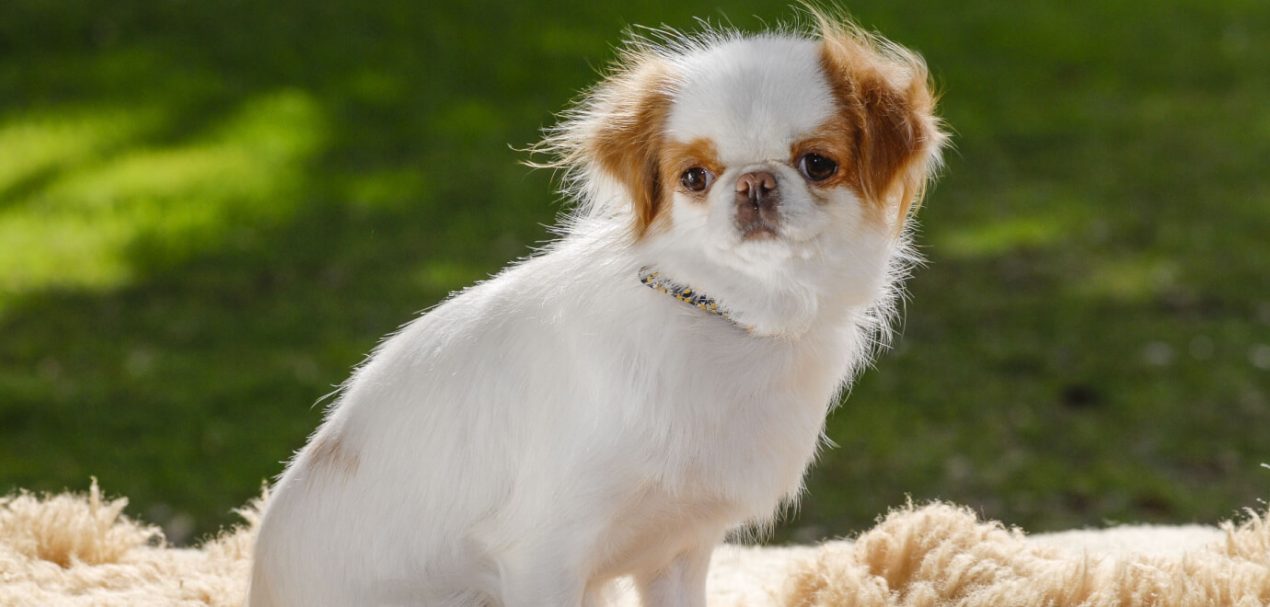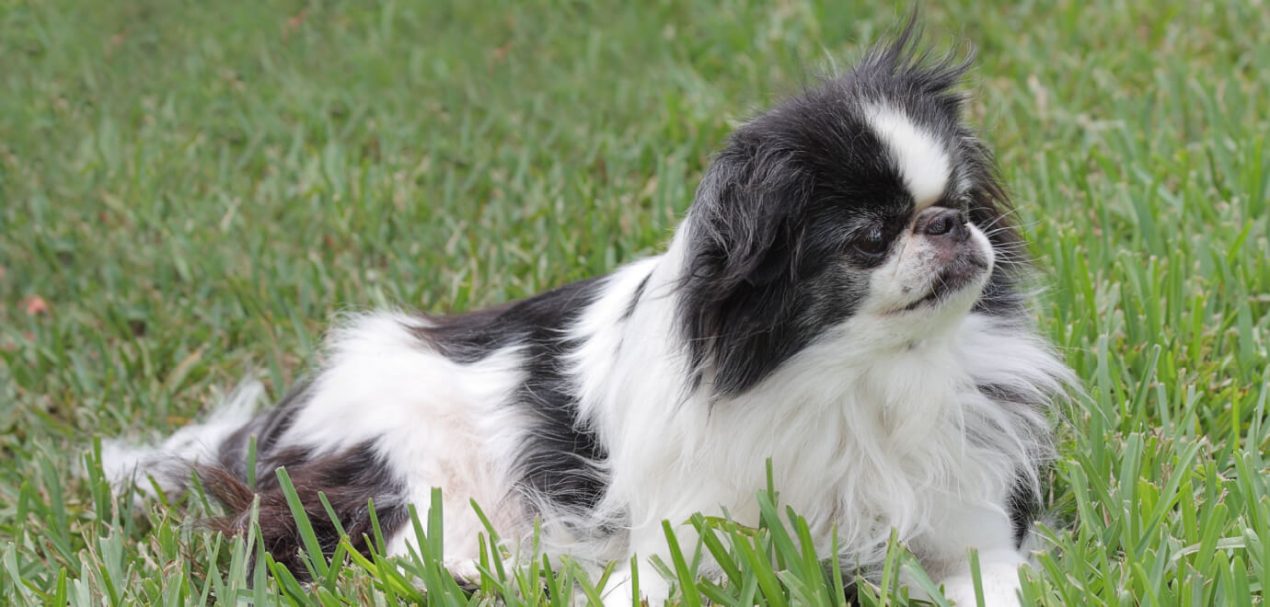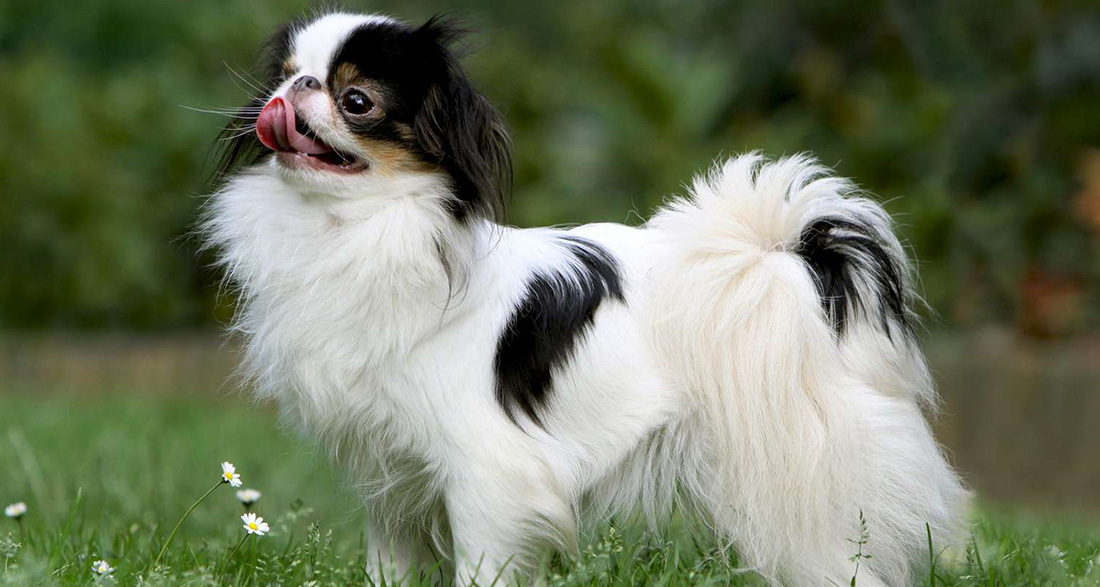The Japanese Chin is a small, elegant breed with a rich history and a lovable character. In this article, we will reveal everything you need to know about the Japanese Chin, from its history and appearance to its temperament and care. We aim to help you better understand this charming breed and what it means to have a Japanese Chin as a loyal companion. Let’s dive into the world of the Japanese Chin together and discover why this breed has captured the hearts of many people.
- History of the Japanese Chin
- Appearance of the Japanese Chin
- Temperament and Character of the Japanese Chin
- Acquiring a Japanese Chin
- Development and Training of the Puppy
- How to Care for a Japanese Chin?
- Activities with the Japanese Chin
- Grooming a Japanese Chin
- Health and Genetic Diseases
- Interesting and Noteworthy
History of the Japanese Chin
The history of the enchanting Japanese Chin dates back to ancient China. Over a thousand years ago, these adorable dogs were presented as gifts to the Japanese aristocracy. They were called “Chin,” which means “nobility” or “royalty.” They were considered symbols of good luck and were cherished by nobles and kings. Over time, they became known in other parts of the world and gained great popularity.
During the 19th century, Japanese Chins found their way to Europe and North America and quickly charmed people with their royal charm. They became loyal companions and beloved pets, continuing to enchant people around the world to this day.
Breed Overview
GROUP: Toy
HEIGHT: 8 to 11 inches (to the withers)
WEIGHT: 4 to 9 pounds
COAT: Long, sleek and smooth coat
COAT COLOR: Colors include black and white, lemon and white, sable and white, and black, white and tan
LIFE SPAN: 10 to 14 years
TEMPERAMENT: Alert, loyal, loving, independent, intelligent
HYPOALLERGENIC: No
ORIGIN: China
Appearance of the Japanese Chin
The Japanese Chin is a small breed with a graceful appearance. They have a well-proportioned body covered in long, silky fur. Their large, dark eyes radiate curiosity and intelligence, while their small, hanging ears complete their charming look. With their flat faces and small, black noses, they have a unique presence.
What makes the Japanese Chin particularly fascinating is their variety of coat colors, including black and white, red and white, and black and tan. Their fur is dense and flowing, adding to their enchanting allure. Overall, they exude a royal elegance that makes them a true sight to behold.

Temperament and Character of the Japanese Chin
The Japanese Chin is known for its loving and friendly nature. They are extremely affectionate and form strong bonds with their owners. Their gentle demeanor makes them excellent family dogs who also get along well with children. They are playful and have a lively side that brings much joy and entertainment.
These intelligent dogs are easy to train, provided positive reinforcement methods are used. They have a natural curiosity and enjoy learning new things. Their friendly nature also makes them popular therapy dogs for elderly people or those seeking companionship.
| Affection Level | High |
| Friendliness | High |
| Kid-Friendly | Medium |
| Pet-Friendly | Medium |
| Exercise Needs | Medium |
| Playfulness | Medium |
| Energy Level | Medium |
| Trainability | Medium |
| Intelligence | High |
| Tendency to Bark | Low |
| Amount of Shedding | Medium |
Acquiring a Japanese Chin
If you have decided to welcome a Japanese Chin into your life, you should prepare well. Research reputable breeders or shelters offering Japanese Chins for adoption. It’s important to choose a responsible breeder who prioritizes the health and well-being of their dogs.
Before bringing your new furry companion home, prepare your home for their arrival. Create a cozy corner with toys, a comfortable bed, and food bowls. Give them time to settle in and build a loving relationship with them. With proper preparation and lots of love, you will have a wonderful time with your Japanese Chin.
Development and Training of the Puppy
Once you’ve decided to welcome an adorable Japanese Chin puppy into your home, it’s important to properly guide their development and training from the beginning. The first weeks and months are crucial for their socialization and the development of their personality.
During the first weeks, the puppy should be with its mother and littermates to develop social skills and learn important lessons about dog behavior. When you finally bring them home, provide a warm and cozy environment that offers them security.
Puppy training should be based on positive reinforcement. Reward them with praise, cuddles, and treats when they exhibit desired behavior. Conversely, avoid harsh punishments as these can cause fears and behavioral issues.
Training should also be done in a playful manner to make the puppy enjoy learning new things. Short training sessions, associated with fun and positive experiences, are ideal for a young dog’s attention span.
Patience is the key to successful training. Give the puppy enough time to adjust to its new surroundings and family. With loving guidance and consistency, you will have a well-behaved and happy Japanese Chin that will bring you much joy.
How to Care for a Japanese Chin?
Caring for a Japanese Chin requires love, attention, and willingness to spend time with them. This small breed is very people-oriented and loves to be near their family. Make sure they don’t have to spend too much time alone, as they can become sad and anxious.
Since the Japanese Chin is a small dog, they are well-suited for living in an apartment or smaller house. However, they still need regular walks and activities to stay healthy and happy.
Provide a safe environment, as the Japanese Chin enjoys playing and exploring. Ensure they have access to toys and other forms of entertainment to avoid boredom.
The breed is also susceptible to heat, so make sure they stay cool on warm days and have access to plenty of water.
Activities with the Japanese Chin
The Japanese Chin is a playful and lively dog that enjoys being active. Although small, they love spending time outdoors and participating in exciting activities.
Walks are a great way to keep your Japanese Chin happy and healthy. They love to explore the world around them and discover new scents. However, make sure the walks are not too long, as their small legs can tire quickly.
Playful activities such as fetching balls or solving puzzle toys are also popular with this breed. They enjoy being mentally challenged and will be delighted to work with you.
Since the Japanese Chin is a social dog, they can also enjoy playing in dog parks or playgrounds for dogs. There, they can interact with other dogs and burn off energy.
The most important thing is to have fun and enjoy your time together. With enough activities and loving attention, you will build an unforgettable bond with your Japanese Chin.

Grooming a Japanese Chin
Caring for a Japanese Chin requires loving attention and regular routine. Although you might be deceived by its luxurious coat, taking care of this adorable dog isn’t too demanding.
The silky fur of the Japanese Chin needs regular brushing to avoid tangles and mats. Brushing once a day is ideal to keep its coat in top condition and remove excess hair. Brushing isn’t just good for its fur; it also strengthens your bond and is a relaxing time for both of you.
Also, pay attention to grooming its ears, eyes, and teeth. Gently wipe its ears to remove dirt and regularly check its eyes for signs of irritation. Teeth should also be cleaned regularly to avoid dental issues.
Remember to give it regular baths when its coat gets dirty. Use mild dog shampoos suitable for its skin.
By regularly scheduling time for the care of your Japanese Chin, you will ensure that it is always well-groomed and happy.
Health and Genetic Diseases
The Japanese Chin is generally a healthy breed, but like all dogs, they can suffer from certain health problems. It’s important to watch for signs of discomfort and conduct regular veterinary check-ups to monitor its health.
Due to their flat faces, Japanese Chins are susceptible to respiratory problems and heat exhaustion. Ensure they stay cool and well-hydrated on hot days. They can also suffer from eye problems, so their eyes should be checked regularly.
Other potential health issues include heart problems and dental problems. A healthy diet, regular exercise, and good dental care can help minimize these issues.
It’s also important to consider breeding lines to reduce the risk of hereditary health problems. Responsible breeders conduct health tests to ensure their dogs are free from hereditary diseases.
By taking good care of your Japanese Chin and conducting regular veterinary visits, you can ensure it leads a happy and healthy life.
Interesting and Noteworthy
The Japanese Chin has a fascinating history dating back to ancient China. They were once presented as gifts to the Japanese nobility and were considered royal companions.
This adorable breed holds a special place in Japanese culture and has often been depicted in artworks and ceramics. They were considered good luck charms and symbolized wealth and prosperity.
Japanese Chins are known for their loving and affectionate nature. They love spending time with their family and are extremely social. Their playful nature and cheerful demeanor make them true bringers of joy.
Their silky fur comes in various colors, including black and white, red and white, and black and tan. Brushing their coat is not only important for their care but also strengthens the bond between you.
Conclusion
The Japanese Chin has a fascinating history and was once cherished by Japanese nobles and kings. Today, the Japanese Chin is popular as a lovable family dog, captivating with its friendly nature and playful demeanor. You have learned how important it is to provide loving care and attention to keep your Japanese Chin happy and healthy.
By treating it with respect and care, you will build a deep bond with your furry companion and experience many unforgettable moments together. The Japanese Chin is more than just a pet – it becomes a true family member that enriches your life with joy and love. We wish you a wonderful time with your Japanese Chin and hope you thoroughly enjoy this special breed.


